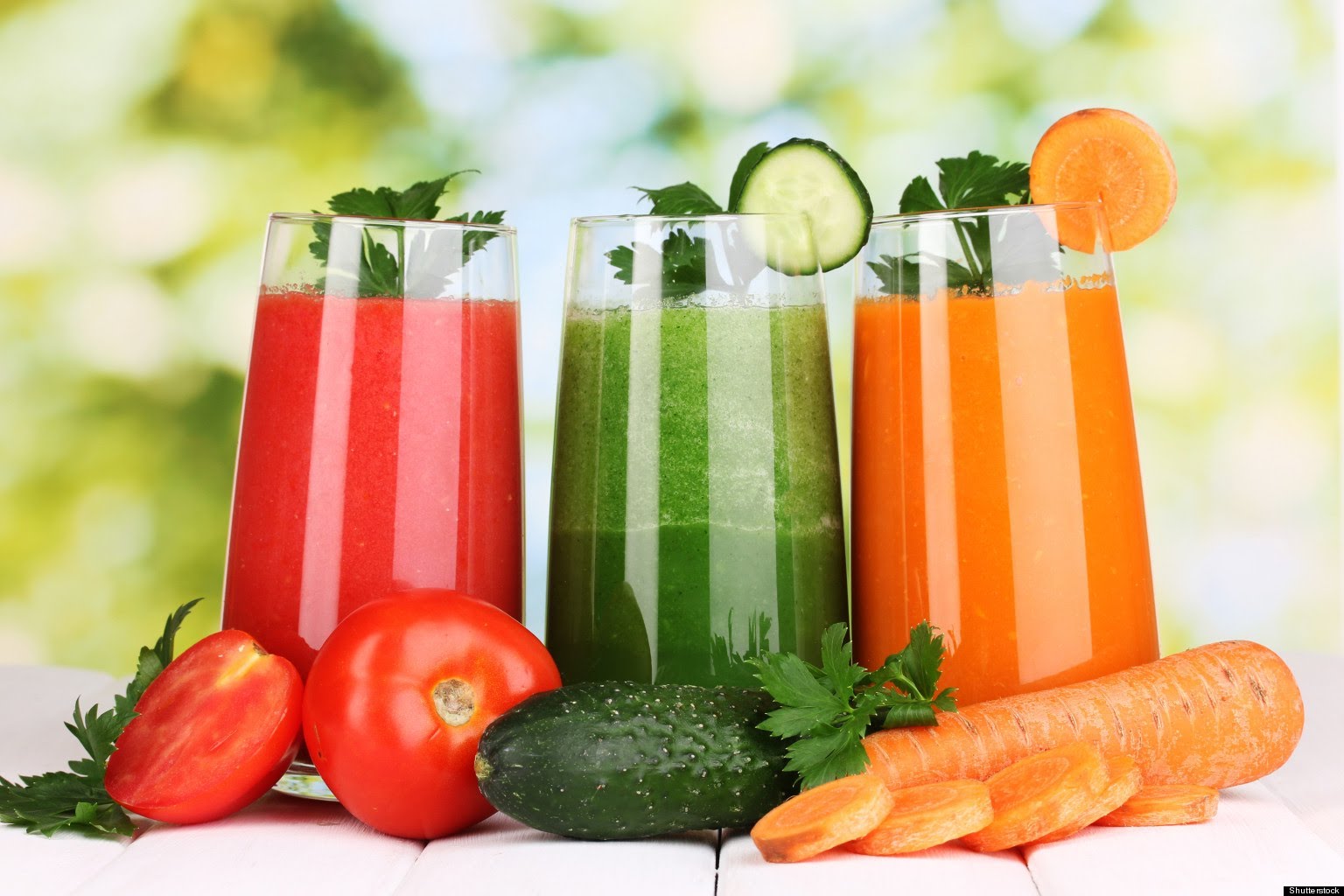Health Benefits & Weight Loss With Drinking Green Juice
Green juice has gained popularity for the list of health benefits associated with drinking it. It's a convenient way to ensure you're getting close to -- if not all of -- the USDA's daily recommended amounts of fruits and vegetables. Green juice can be quite tasty, and if you heed a few parameters, you may experience health benefits such as more energy, improved immunity and weight loss. The key is making sure you control the calories -- in addition to consuming your juice at the right time.

Energy
Green juices are made with fruits and vegetables filled with antioxidants, phytochemicals, minerals and vitamins -- sometimes as much as a day's worth of vegetables in one serving. When vegetables are juiced, the natural sugars in the vegetable are separated from the pulp, which is where the fiber is located. You may feel a "pump" of energy once those natural sugars get into your bloodstream and your glucose levels are raised.
Weight Loss
Adding fruit to juices varies the flavor, but it comes with a price -- extra calories. If you are doing a juice fast and drinking green juices is your only source of nutrition, you can still enjoy weight-loss benefits while getting all the vitamins and minerals your body needs. The key is evenly spreading out your intake over an entire day since your body uses energy throughout the day, versus one or two servings full of calories. Packing an entire day's worth of calories into a few servings can be a recipe for weight gain and muscle damage if the body needs energy at a time when its glycogen stores are depleted
Immunity
Green juices usually start with fresh vegetables such as spinach, kale, broccoli or others as your base. In a study published in the journal "Cell" in 2011, researchers at the Babraham Institute in Cambridge, England, reported that cruciferous vegetables such as bok choy and broccoli contain a compound that boosts immunity and provides an extra layer of protection to cells in the body.
Timing Is Everything
Since juicing vegetables removes the fiber and makes the sugar more readily available, you'll need to use that sugar wisely. Consume carbs within 30 minutes of training to restore the glucose you've used during your workout. This keeps the muscles from using protein as an energy source. Using the sugar in the green juice to replace glycogen stores that were depleted while working out means the sugar isn't stored in the body as excess glucose, which may be stored as fat if you take in more glucose than the body needs or has the capacity to store.
Considerations
If you're incorporating green juices into your diet as a means of improving your overall health, blending -- or pureeing -- your vegetables into a smoothie with the help of low-sugar liquids, such as water, juice or milk, may be better options for you. With blending and pureeing, the fiber stays intact. This way, you'll still receive the benefits of feeling fuller longer, which can keep you from consuming more calories in addition to those contained in your green juice.
